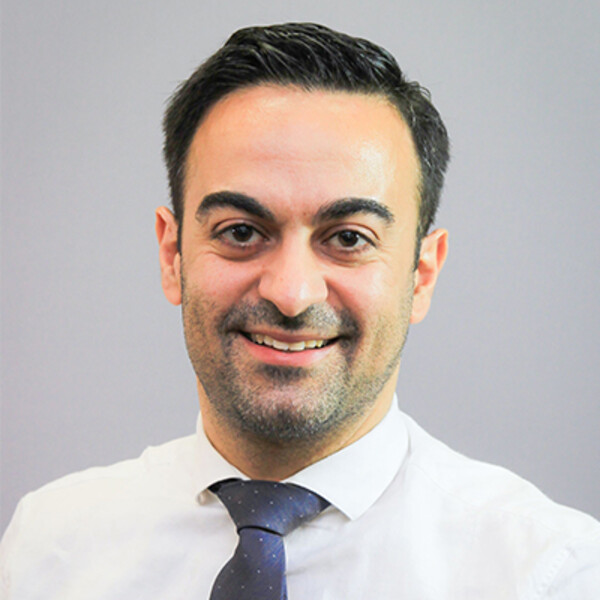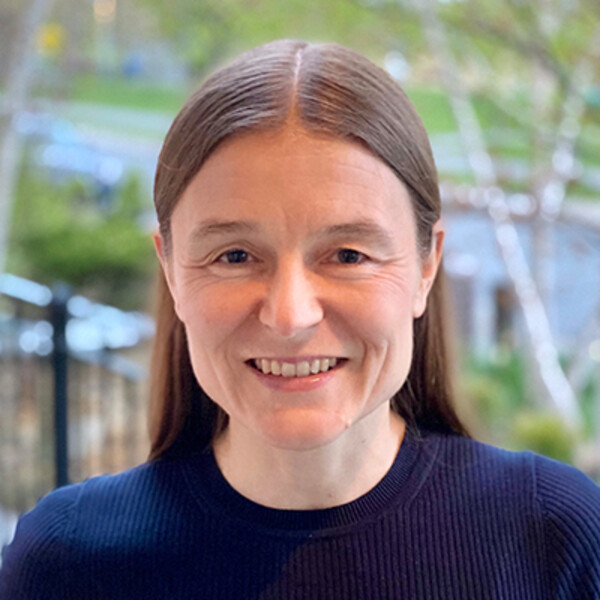
Main Second Level Navigation
Breadcrumbs
- Home
- Research
- Research events
- The Undergraduate Research Conference
- 2025: Byte-Sized Biology
Byte-Sized Biology: How AI Decodes Human Health Bit-by-Bit
13th LMPSU conference
Join us as we take a deep dive into the innovative research conducted by world-renowned researchers on artificial intelligence and human health. This conference will shed light on the most recent developments in the fields of AI, machine learning and bioinformatics, inspiring our attendees to explore their cutting-edge, untapped potential for human health.
The event will conclude with a panel discussion where attendees can directly engage with the experts on their thoughts regarding the field's future trajectory.
Where & when
Saturday, January 11, 2025
9:30 am - 4:30 pm, breakfast from 8.30 am
Earth Sciences Centre
22 Ursula Franklin Street (formerly Russell St)
Toronto, Ontario, M5S 3B1
Who this conference is for
This conference is free and open to all! We welcome all interested learners, faculty and alumni from the University of Toronto.
You can contact the LMPSU committee at lmpexecs@gmail.com.
Find out what happened at the last LMPSU conference in our news story Navigating Neurodegeneration: LMPSU's successful conference on brain matter.
Information for attendees
The Agenda
Draft agenda
08:30 - 09:30 am - breakfast and registration
09:30 - 09:35 am - Welcome, LMPSU Co-Presidents, Riley Alvarez and Steven Ding
09:35 - 09:45 - Opening remarks, LMP Department Chair, Dr. Rita Kandel
09:45 - 10:30 am - Keynote address, Dr. Phedias Diamandis, University Health Network (UHN), "PHARAOH: A collaborative crowdsourcing platform for Phenotyping And Regional Analysis Of Histology"
10:30 - 11:15 am - Dr. Michael Brudno, Vector Institute, UHN, "Healthcare data in the age of AI"
11:15 am - 12:00 pm - Dr. Anna Goldenberg, T-CAIREM, SickKids, "AI in Healthcare: Research vs Deployment"
12:00 - 01:00 pm - Lunch break
01:00 - 01:45 pm - Dr. Muhammad Mamdani, Vector Institute, T-CAIREM, St. Michael's Hospital, "The Application of Artificial Intelligence in Healthcare"
01:45 - 02:30 pm - Dr. Andrew Evans, Mackenzie Health, "Implementation of Artificial Intelligence in Pathology: Plenty of Promise - Plenty of Work Ahead to Make it Happen"
02:30 - 03:15 pm - Dr. Venkata Duvvuri, Public Health Ontario, "AI and Data Science: Driving Advances in Public Health Microbiology and Pathogen Genomics"
03:15 - 03:30 pm - Coffee break
03:30 - 04:15 pm - Panel discussion with Dr. Phillip Kim, Dr. Andrew Evans, Dr. Venkata Duvvuri and Dr. Susan Poutanen
04:15 - 04:30 pm - Closing remarks and conference end
In the lobby
Meet the team from The Temerty Centre for Artificial Intelligence Research and Education in Medicine (T-CAIREM) at the University of Toronto and learn about T-CAIREM and the Healthdata Nexus.
Photography and videos
We will be taking photographs and recording some videos for departmental purposes.
If you do not wish to be in any of the photos or videos, please make yourself known to the person taking pictures or videos.
Speaker biographies
See below for speaker information. We will update as we receive more information!

Dr. Phedias Diamandis MD, PhD, FRCPC
Presentation Title: 'PHARAOH: A collaborative crowdsourcing platform for Phenotyping And Regional Analysis Of Histology’
Dr. Diamandis completed his combined MD/PhD and residency training in neuropathology at the University of Toronto. He is a Neuropathologist at the University Health Network and a Scientist at Princess Margaret.
His research focuses on using chemical biology, deep learning and mass spectrometry-based proteomics to resolve phenotype-level heterogeneity in different brain and glioblastoma niches.

Dr. Michael Brudno
Presentation Title: Healthcare data in the age of AI
Michael Brudno is a Professor in the Department of Computer Science at the University of Toronto and the Chief Data Scientist at the University Health Network (UHN). He is also a faculty member at the Vector Institute for Artificial Intelligence and the Scientific Director of HPC4Health, a private computing cloud for Ontario hospitals.
Michael’s primary area of interest for his research is the development of computational methods for the analysis of clinical and genomic datasets, especially the capture of precise clinical data from clinicians using effective user interfaces and its utilization in the automated analysis of genomes. His work focuses on the capture of structured phenotypic data from clinical encounters, using both refined user interfaces, and mining of unstructured data (based on machine learning methodology), and the analysis of omics data (genome, transcriptome, epigenome) in the context of the structured patient phenotypes.
Michael received a BA in Computer Science and History from UC Berkeley and later received his Ph.D. from the Computer Science Department of Stanford University, working on algorithms for whole-genome alignments. He completed a postdoctoral fellowship at UC Berkeley and was a Visiting Scientist at MIT. He is the recipient of the Ontario Early Researcher Award and the Sloan Fellowship, as well as the Outstanding Young Canadian Computer Scientist Award.

Dr. Anna Goldenberg PhD
Presentation Title: AI in Healthcare: Research vs Deployment
Dr. Anna Goldenberg is a professor in the departments of Computer Science and Laboratory Medicine and Pathobiology. She is the program director of the MScAC concentration in Artificial Intelligence in Healthcare. She is the Research Co-Lead, Temerty Centre for Artificial Intelligence Research and Education in Medicine (T-CAIREM).
She is a Varma Family Chair in Biomedical Informatics and Artificial Intelligence at SickKids Research Institute, as well as a CIFAR AI Chair at the Vector Institute. She co-chairs AI in Medicine initiatives at both UofT and SickKids. Dr. Goldenberg trained in machine learning at Carnegie Mellon University with a postdoctoral focus in Computational Biology and Medicine. The current focus of her lab is on developing and deploying machine learning models to healthcare. Dr Goldenberg’s lab is strongly committed to creating responsible AI to benefit patients across various conditions.

Dr. Muhammad Mamdani, PharmD, MA, MPH
Presentation Title: The Application of Artificial Intelligence in Healthcare
Dr. Mamdani is Vice President of Data Science and Advanced Analytics at Unity Health Toronto and Director of the University of Toronto Temerty Faculty of Medicine Centre for Artificial Intelligence Research and Education in Medicine (T-CAIREM).
Dr. Mamdani’s team bridges advanced analytics including machine learning with clinical and management decision making to improve patient outcomes and hospital efficiency.
Dr. Mamdani is also Professor in the Department of Medicine of the Temerty Faculty of Medicine, the Leslie Dan Faculty of Pharmacy, and the Institute of Health Policy, Management and Evaluation of the Dalla Lana School of Public Health. He is also an Affiliate Scientist at IC/ES and a Faculty Affiliate of the Vector Institute.
In 2024, Dr. Mamdani’s team received the national Solventum Health Care Innovation Team Award by the Canadian College of Health Leaders. Previously, Dr. Mamdani was named among Canada’s Top 40 under 40. He has published over 500 studies in peer-reviewed medical journals. Dr. Mamdani obtained a Doctor of Pharmacy degree (PharmD) from the University of Michigan (Ann Arbor) and completed a fellowship in pharmacoeconomics and outcomes research at the Detroit Medical Center. During his fellowship, Dr. Mamdani obtained a Master of Arts degree in Economics from Wayne State University with a concentration in econometric theory. He then completed a Master of Public Health degree from Harvard University with a concentration in quantitative methods.

Dr. Andrew Evans MD, PhD, FACP, FRCPC
Presentation Title: Implementation of Artificial Intelligence in Pathology: Plenty of Promise - Plenty of Work Ahead to Make it Happen
Dr. Evans is Chief of Pathology and Medical Director of Laboratory Medicine at Mackenzie Health and an Associate Professor at the University of Toronto. He is a consultant in genitourinary pathology and an internationally recognized expert in digital pathology with over 20 years of experience in the use of the technology for patient care purposes.
Mackenzie Health transitioned to complete digital pathology for surgical pathology in 2021 and is currently in the process of integrating AI tools into routine diagnostic workflow.
Prior to moving to Mackenzie Health in 2020, Dr. Evans was Director of Telepathology/Digital Pathology at University Health Network from the inception of the program in 2004. This program successfully introduced digital pathology into routine patient care for frozen sections, consultation, quality control/assurance and primary diagnosis. Since 2010, he has been a member of numerous College of American Pathologists committees and guideline development efforts related to digital pathology and is currently a member of the CAP Artificial Intelligence Committee and Council for Informatics and Pathology Innovation.

Dr. Venkata R. Duvvuri, PhD, MPH
Presentation Title: AI and Data Science: Driving Advances in Public Health Microbiology and Pathogen Genomics
Dr. Venkata R. Duvvuri is a Scientist (Machine Learning) at Public Health Ontario and an Assistant Professor at the Department of Laboratory Medicine and Pathobiology at the University of Toronto.
Dr. Duvvuri leads a multidisciplinary research program focused on translating public health microbiology and genomics knowledge into actionable insights, advancing the practice of public health analytics, and developing effective mitigation strategies. His research leverages cutting-edge approaches:
- integrating data science and artificial intelligence to optimize laboratory operations, develop genome-based AI models for antimicrobial resistance prediction, and conduct research on long COVID-19 to address its long-term public health challenges.
- promoting applied genomic epidemiology (phylodynamics) to translate pathogen genomes to study epidemic/pandemic potential, trace disease transmission dynamics, and assess the effectiveness of intervention programs for improved public health outcomes; and
- identifying biomarkers from pathogen genomics to fasten the development of rapid molecular diagnostic tests as well as next-generation vaccines.
His ongoing research addresses emerging infectious threats, surveillance, and antimicrobial resistance with an emphasis on respiratory diseases (influenza, respiratory syncytial virus, enterovirus, COVID-19), sexually transmitted infections (syphilis), and foodborne illnesses (shigellosis).
Dr. Duvvuri co-chairs the Canadian technical working group 'Phylodynamics for Public Health,' which aims to promote the use of pathogen genomic data and advanced modeling techniques to study the infectious disease outbreaks and transmission. He has published 45+ scientific article in top-rated peer-reviewed journals including Cell, Nature Biotechnology. His research is supported by the Genomics Research and Development Initiative (GRDI), the Canadian Institutes of Health Research (CIHR), and the Public Health Agency of Canada (PHAC).

Dr. Susan M. Poutanen, MD, MPH, FRCPC
Panelist
Dr. Poutanen is a Medical Microbiologist and Infectious Diseases Physician at Sinai Health & University Health Network in Toronto, Canada and an associate professor in the Department of Laboratory Medicine and Pathobiology and Department of Medicine at the University of Toronto.
Dr. Poutanen received her Medical Degree from the University of Toronto in 1996 and completed Internal Medicine and Medical Microbiology Residencies at the University of Toronto and an Infectious Diseases Fellowship at Stanford University, California. She received her Masters of Public Health with a focus on Epidemiology from the University of California, Berkeley in 2002.
Her broad research interests include: the epidemiology and detection of antimicrobial resistance; the preparedness and detection of emerging infectious disease threats; and the optimization of microbiology laboratory practices using point-of-care tests, rapid diagnostics, automation, and artificial intelligence.

Dr. Philip M. Kim
Panelist
Philip M. Kim is a professor at the University of Toronto at the Donnelly Centre and the Departments of Computer Science and Molecular Genetics.
In his academic research, he has been developing novel machine learning methods for protein and peptide engineering and authored over 100 publications, 7 invention disclosures and 5 patent applications. He has co-founded several biotechnology companies, including Fable Therapeutics and TBG Therapeutics and serves as consultant and member of the scientific advisory board for others.
Before setting up his lab in 2009, he was a postdoctoral fellow at Yale University and an associate with McKinsey & Co. He holds a Ph.D. from the Artificial Intelligence Laboratory and Department of Chemistry at the Massachusetts Institute of Technology and a B.S. in Physics and Biochemistry from the University of Tuebingen.
